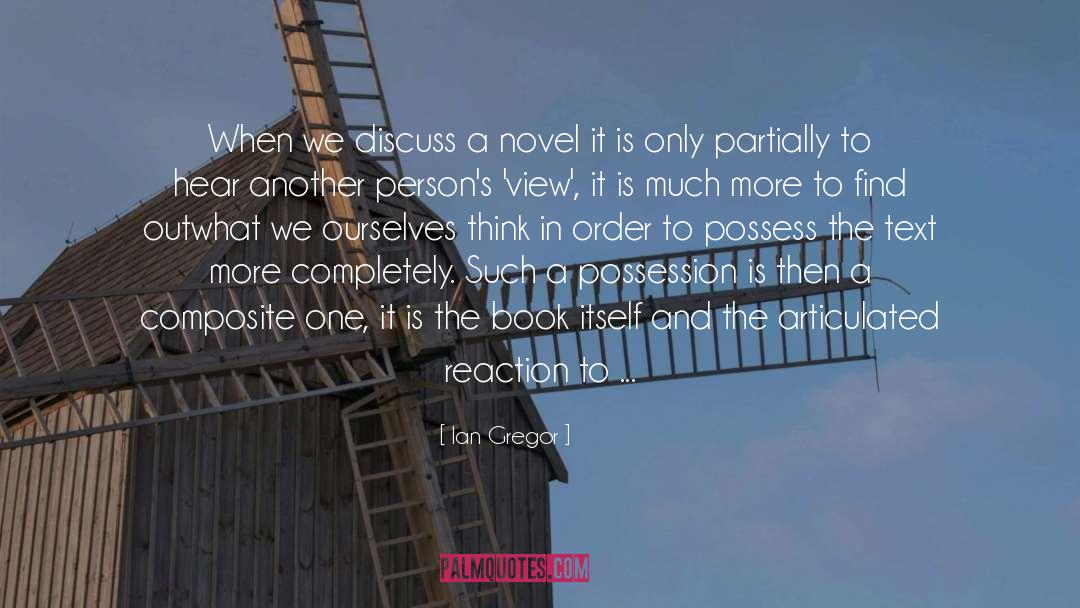Ian Gregor Famous Quotes
Reading Ian Gregor quotes, download and share images of famous quotes by Ian Gregor. Righ click to see or save pictures of Ian Gregor quotes that you can use as your wallpaper for free.
We are always sure that the heroine is fiery and passionate, which is quite an achievement when the plot has had to keep her passive, inactive and loveless for long stretches. Up to the point when Jane's love declares itself, the novel establishes the passion largely by negatives - a method very prophetic of that of D. H. Lawrence, who was in many ways influenced by Charlotte Brontë.
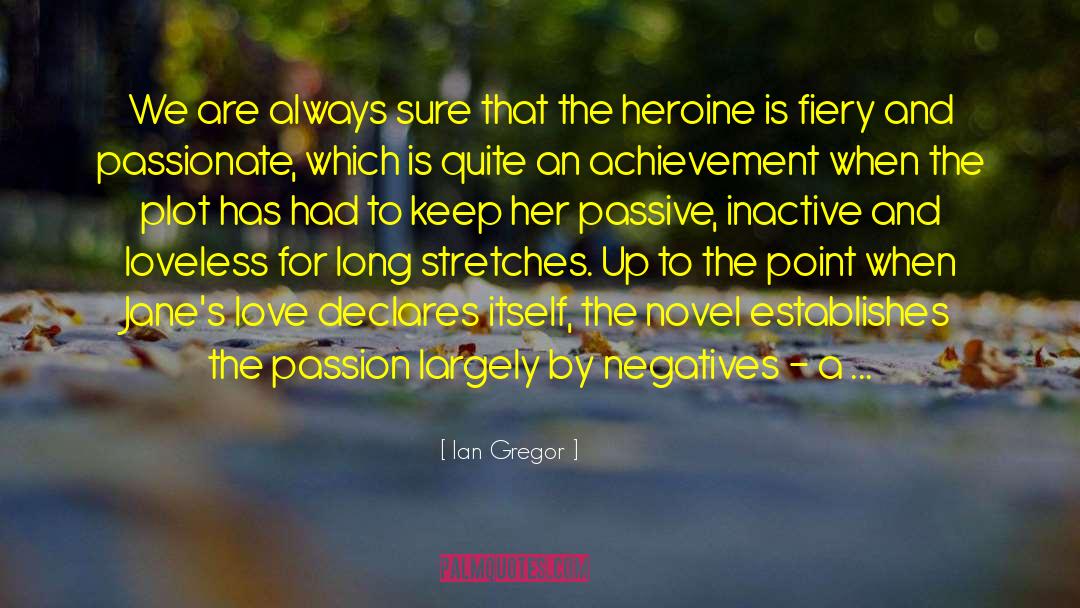
Indeed, and crucially so, the serial form took
the control of the novel away from the reader and left him in an imagined space that could not be thought of in terms of the physical space still to be read. At the end of each instalment the reader would contemplate a vacuum, an 'end' which looked forward to a continuing verbal space which he could not measure.
He might speculate but he could not know.
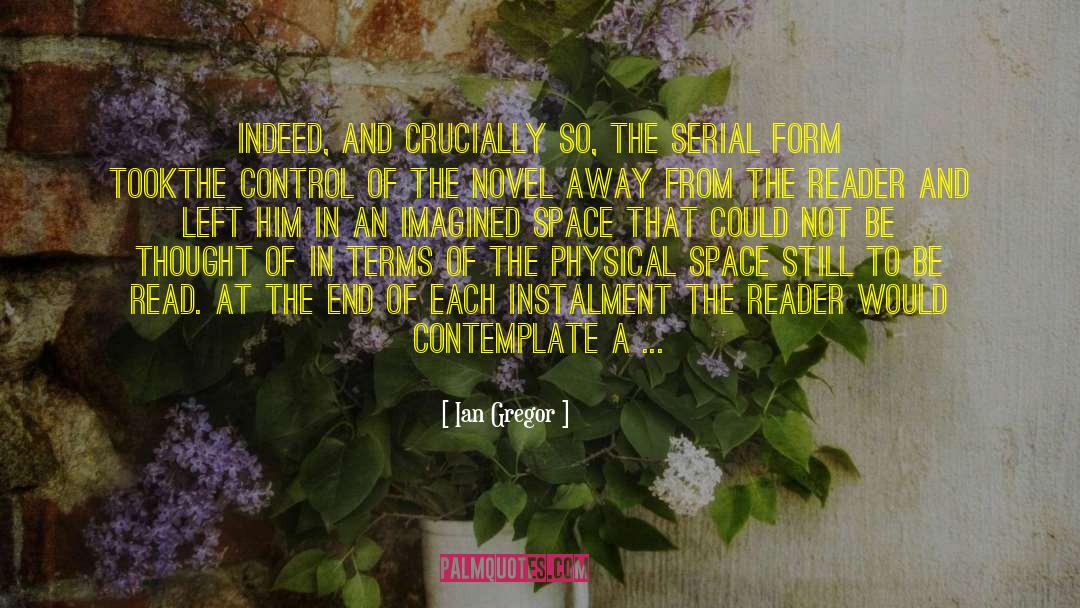
Recognising such dimensions implicit to the reading experience can distract from the immediacy of our response; it can substitute literary archaeology for novelistic reality. That is one pole. But the other extreme is equally limiting. By failing to realise the issues involved in communicating with fictional modes that are different
to our own, in effect we do not read in the fullest sense. Between intellectual pedantry and cultivated ignorance I would pose a third approach to reading - that of the informed imagination. After occupying this position true evaluation can begin.
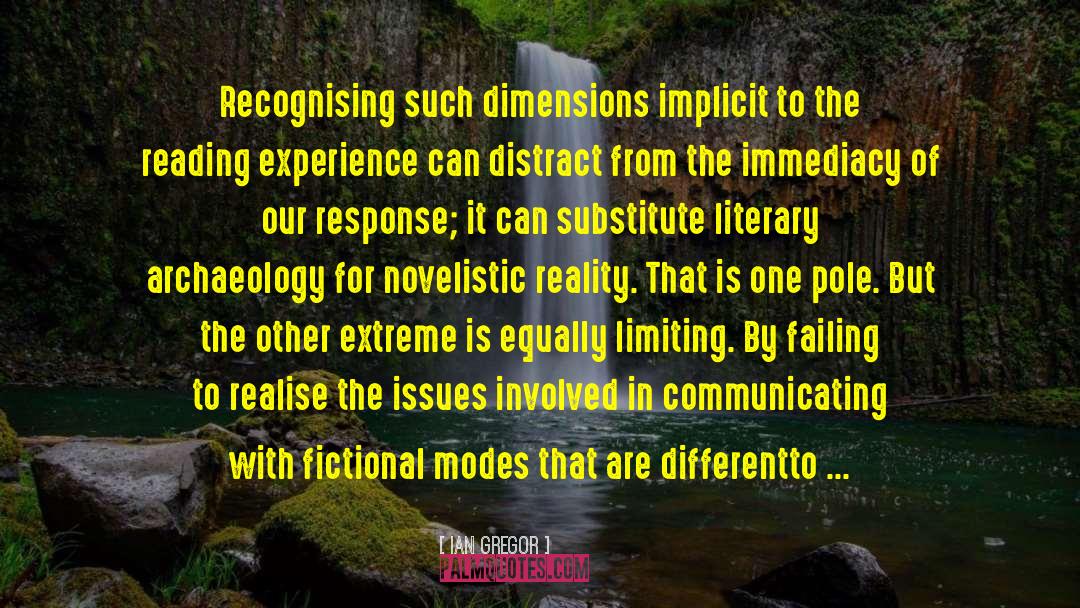
Reading Mrs Gaskell's Life of Charlotte Brontë after Jane Eyre is a curious experience. The subject of the biography is recognisably the same person who wrote the novel, but the effect of the two books is utterly different. The biography is indeed depressing and painful reading. It captures better, I believe, than any any
subsequent biography the introverted and puritan pessimist side of Charlotte Brontë, and conveys the real dreariness of the world of privation, critical discouragement and limited opportunity that
so often made her complain in her letters that she felt marked out for suffering.
Jane Eyre, on the other hand, is exhilarating reading, partly because the reader, far from simply pitying the heroine, is struck by her resilience, and partly because the novel achieves such an imaginative transmutation of the drab. Unlike that of Jane Austen's Fanny Price or Dickens's Arthur Clennam or John Harmon, Jane
Eyre's response to suffering is never less than energetic. The reader is torn between exasperation at the way she mistakes her resentments and prejudices for fair moral judgements, and admiration at the way she fights back. Matthew Arnold, seeking 'sweetness and light' was repelled by the 'hunger, rebellion and rage' that he
identified as the keynotes of the novel. One can see why, and yet feel that these have a more positive effect than his phrase allows. The heroine is trying to hold on to her sense of self in a world that gives it little en
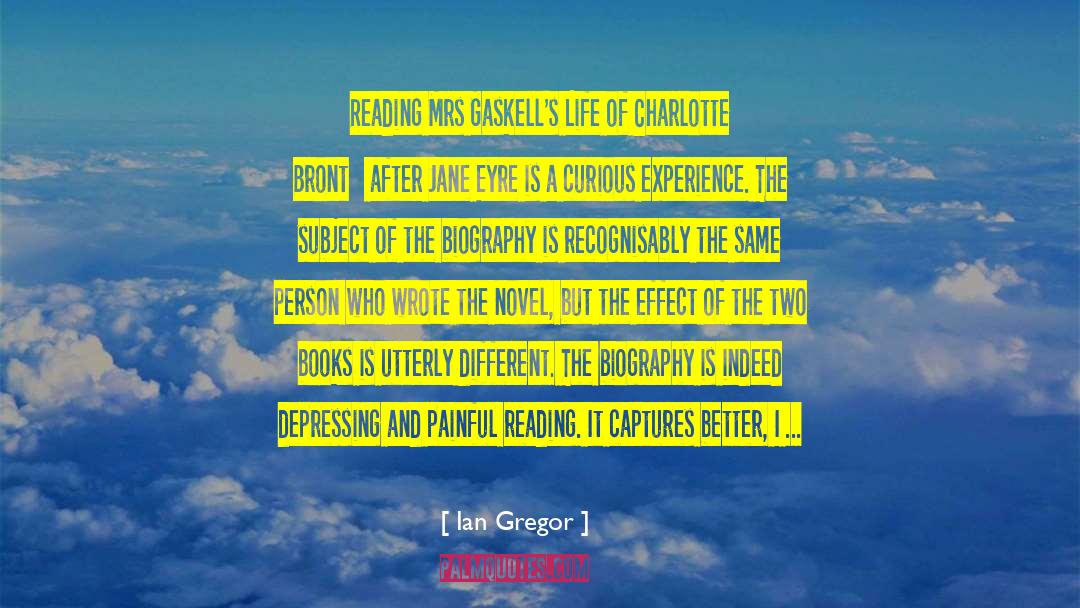
Novels begin and end with, consist of, and indeed in one sense are nothing but voices. So reading is learning to listen sensitively, and to tune in accurately, to varying frequencies and a developing programme.
From the opening words a narrative voice begins to create
its own characteristic personality and sensibility, whether it belongs to an 'author' or a 'character'. At the same time a reader is being created, persuaded to become the particular kind of reader the book requires. A relationship develops, which becomes the essential basis of the experience. In the modulation of the fictive voice,
finally, through the creation of 'author' and 'reader* and their relationship, there is a definition of the nature and status of the experience, which will always imply a particular idea of ordering the world.
So much is perhaps familiar enough, and a useful rhetoric of Voice' has developed. Yet I notice in my students and myself, when its vocabulary is in play, a tendency to become rather too abstract or technical, and above all too spatial and static. Perhaps we need to remind ourselves what it can be like to listen to close friends,
talking animatedly and seriously in everyday experience, in order to make sure that a vocabulary which often points only to broad strategies does not tempt us to underplay the extraordinary resourcefulness,
variety and fluctuation of the novelist's voice.
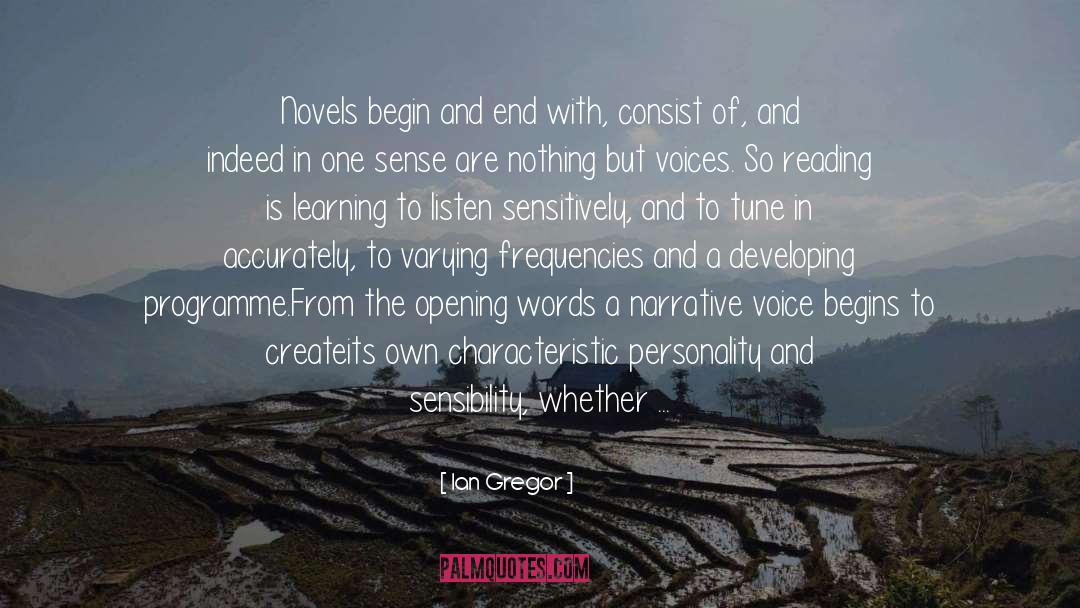
What The Mysteries of Udolpho suggests is how a novel, by presenting phenomena before it present resolutions, can create an on-going, perhaps spurious, but nevertheless compelling dynamic between details which can undermine the ability of form to impose its particular tyranny on the reader's experience: there is a life in the novel which comes from within.
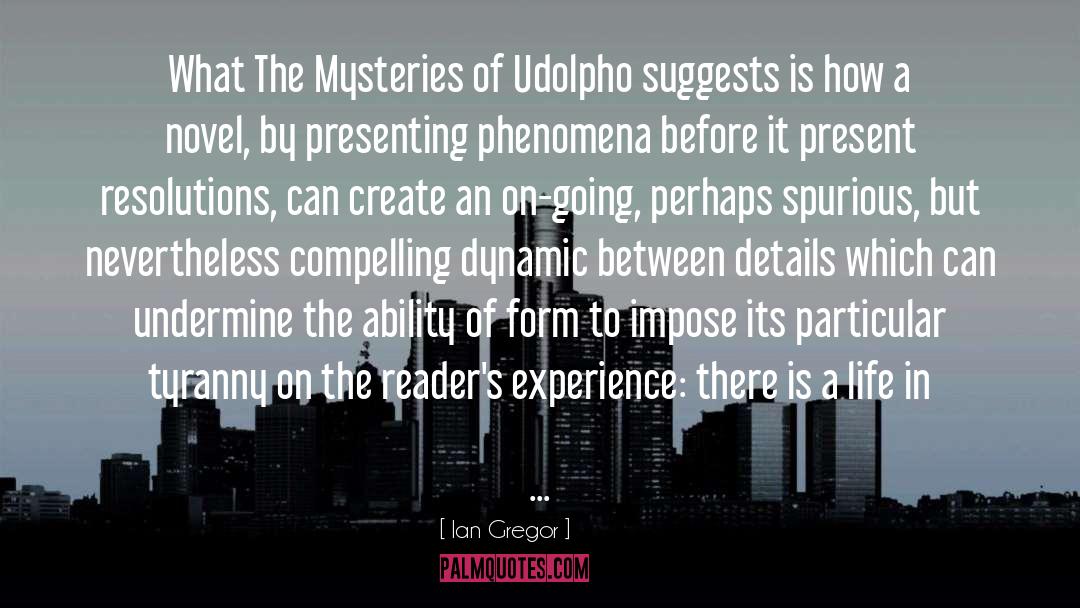
Whether he chooses a 'scholarly' or a 'popular' edition the modern reader is likely to have his judgement influenced in advance. Almost invariably he will be offered an assisted passage. Footnotes, Forewords, Afterwords serve notice that a given text is intellectually taxing - that he is likely to need help. Such apparatus is likely to
be a positive disincentive to casual reading. But a cheaper edition may offer interference of another kind. Reminders, in words or pictures, of Julie Christie's Bathsheba Everdene or Michael York's Pip can perhaps create a beguiling sense of accessibility. But they
may also pre-empt the imaginative responses of the reader.
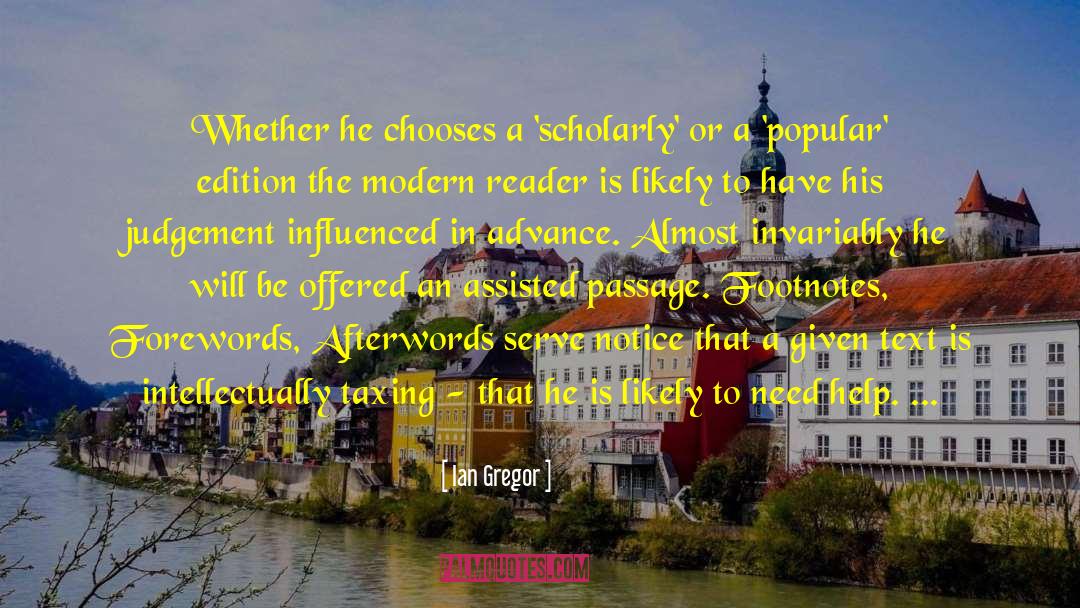
Nowhere is the sense of medium felt more strongly, even by the casual reader, than in a story about to end. For the novelist the problem is no longer how to tell his tale, but how to close it down; how to switch imaginative energies which have been used in sustaining the tale, into energies which will not just stop it, but will resolve it. The process of telling must be made to predicate its
own conclusion. For the reader, in sight of an ending, the mode of attention shifts, the rhythm alters, and a pressure of significance begins to build up behind the closing chapters. The pace of the narrative begins to slow, the 'ever after' looms, past and present emerge in ever sharper juxtaposition. It is this heightened attention
to the medium that characterises the ending and we are not surprised to find that for some novelists 'endings' seem to play false to the narrative which leads to them. 'Conclusions are the weak points of most authors', George Eliot wrote, 'but some of the fault must lie in the very nature of a conclusion which is at best a negation'.
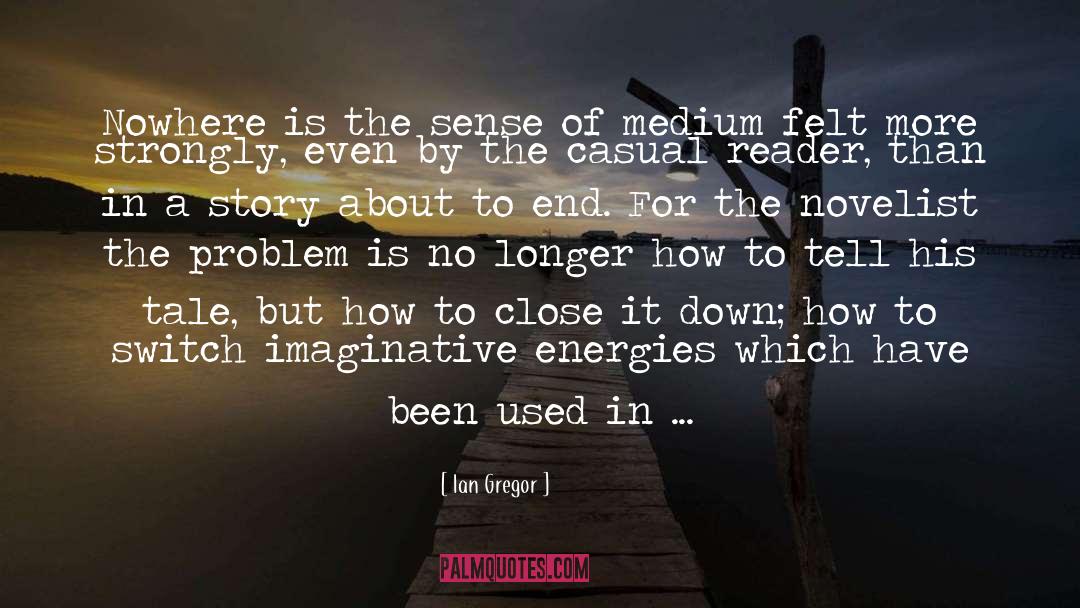
The loudness of tone in Jane Eyre is undoubtedly effective in communicating tension and frustration, but the style does of course have its related limitations. It precludes the use of the small suggestive detail or the quiet but telling observation that Mrs Gaskell and George Eliot are so good at. In such a fortissimo performance
as this, the pianissimo gets drowned out, or noted only as an incongruity (which helps to account for the book's moments of unintended comic bathos). Again, it makes the whole question of modulation of tone a difficult one,6 and it is also hard to manage irony elegantly, as the Brocklehurst and Ingram portraits show.
There is unconscious ambiguity but little deliberate irony in Jane Eyre. Hence the remarkable unity of critical interpretation of the book - the reader knows all too well what he is meant to think about the heroine and the subsidiary characters. The novel does not merely request our judicious sympathy for the heroine, it demands
that we see with her eyes, think in her terms, and hate her enemies, not just intermittently (as in David Copperfield) but in toto. It was, incidentally, because James Joyce recognised the similar tendency of Stephen Hero that he reshaped his autobiographical material as A Portrait of the Artist as a Young Man, retaining the 'first-person effect' but building in stylistic and structural
irony that would guard against the appearance of wholesale authorial endorsement of Stephen.
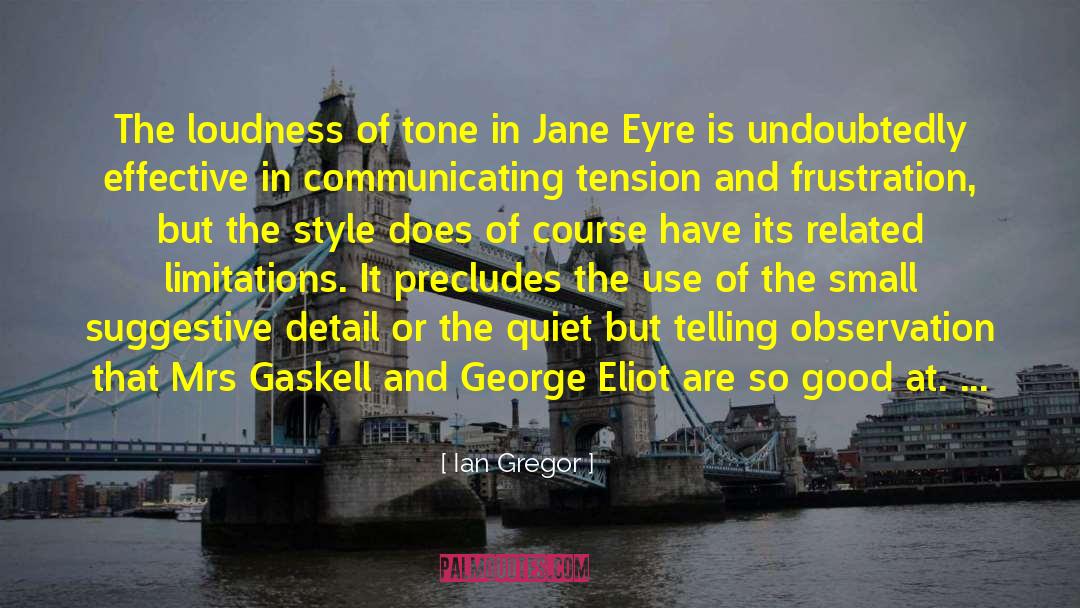
If a writer has to find a rhythm if his novel is to come 'right', a rhythm which he may well discover in the rhythm of an individual sentence, then likewise a reader has to find a corresponding rhythm in his reading, which may equally well be discovered in responding to local effect.
The intimacy of this relationship between writer and reader is well caught in a recent observation made by Graham Greene, 'Novels should always have, if not dull, then at least level patches. That's where the excessive use of film technique, cutting sharply from intensity
to intensity is harmful. . . . The writer needs level passages for his subconscious to work up to the sharp scenes . . . and the reader needs those level patches too, so that he can share in the processes of creation - not by conscious analysis, but by absorption?'
To reflect on the wide-ranging effects of rhythm
in reading would seem to be one way of making a start on tracing that obscure route that leads from 'absorption' to 'conscious analysis'.
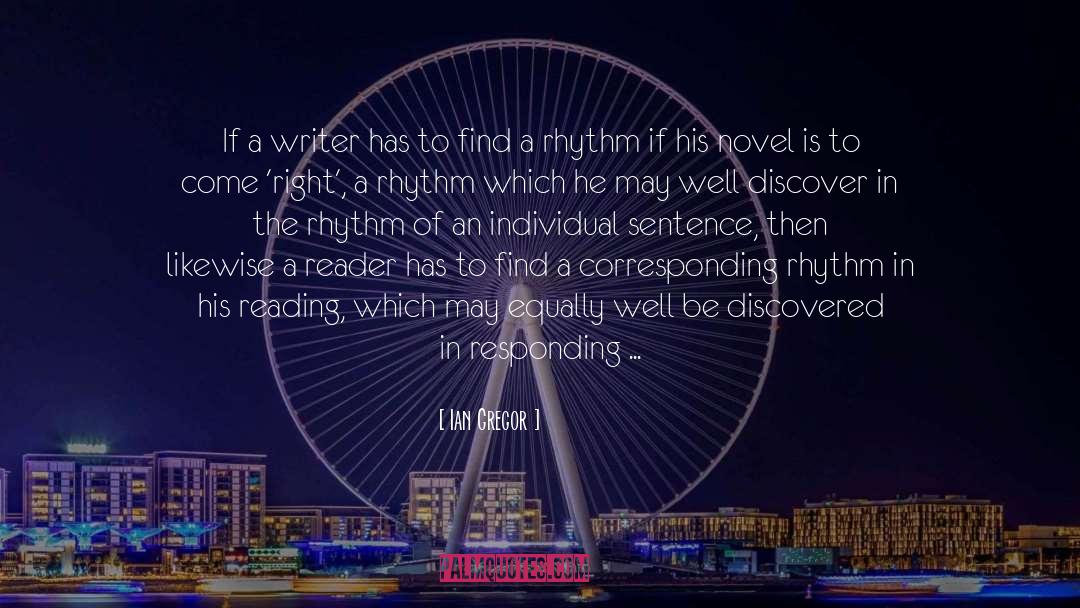
Because it is written by a nineteenth-century American, and because of its closeness to the twentieth century, The Portrait of a Lady foregoes Victorian affirmations. The price it pays, however (together with several twentieth-century novels) is that it eventually leaves the reader, along with its heroine, 'en Vair' amid its self-reflections.
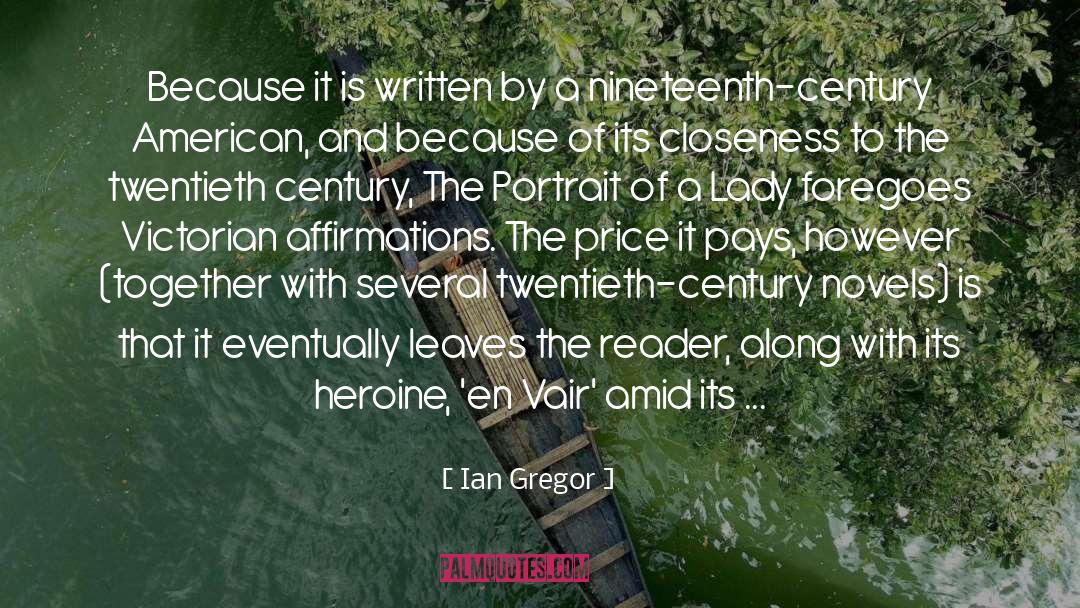
In serious Victorian fiction, as in Shakespearian tragedy, melodrama normally functions as metaphor. The author finds a vivid equivalent for a reality too elaborate or too extended to be briefly depicted.
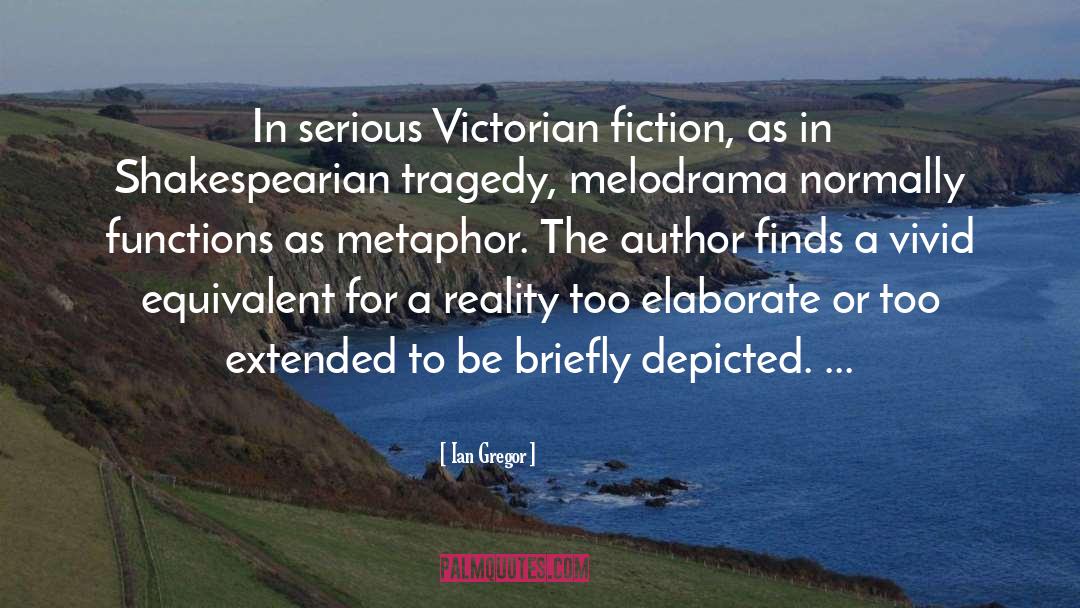
The first unanalysed impression that most readers receive from Jane Eyre is that it has a very violent atmosphere. If this were simply the effect of the plot and the imagined events then sensation novels like Walpole's The Castle of Otranto or Mrs Radcliffe's The Mystery of Udolpho ought to produce it even more powerfully.
But they do not. Nor do they even arouse particularly strong reader responses. Novelists like Charlotte Brontë or D. H. Lawrence, on the other hand, are able quite quickly to provoke marked reactions of sympathy or hostility from readers. The reason, apparently, is
that the narrator's personality is communicating itself through the style with unusual directness.
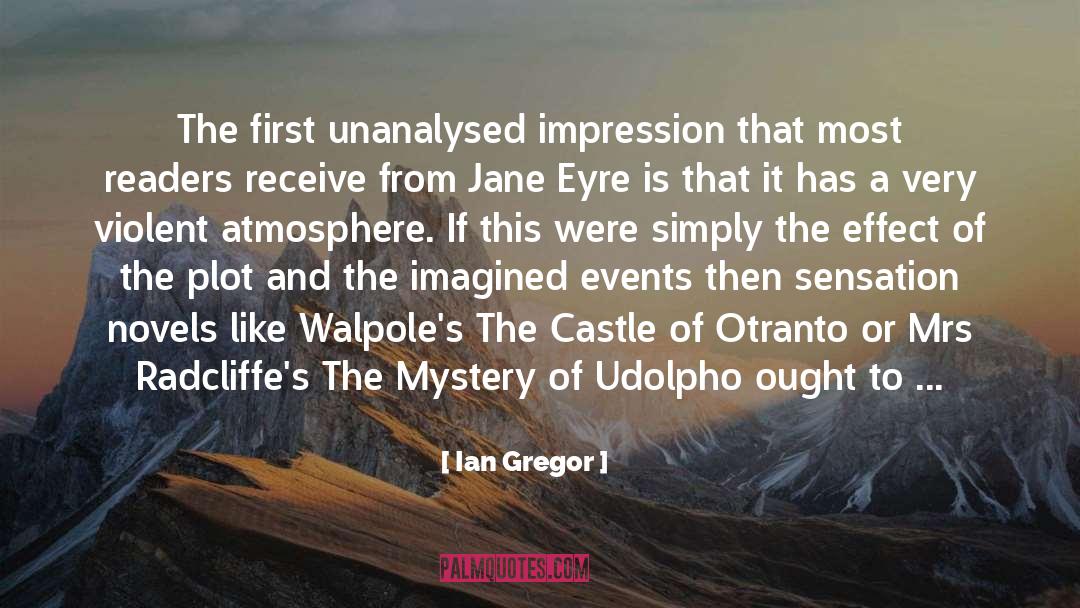
When we discuss a novel it is only partially to hear another person's 'view', it is much more to find out
what we ourselves think in order to possess the text more completely. Such a possession is then a composite one, it is the book itself and the articulated reaction to it. So vivid can be the latter that it is not uncommon to find that the pleasure survives the cause; some novels seem more enjoyable to talk about than to read.
